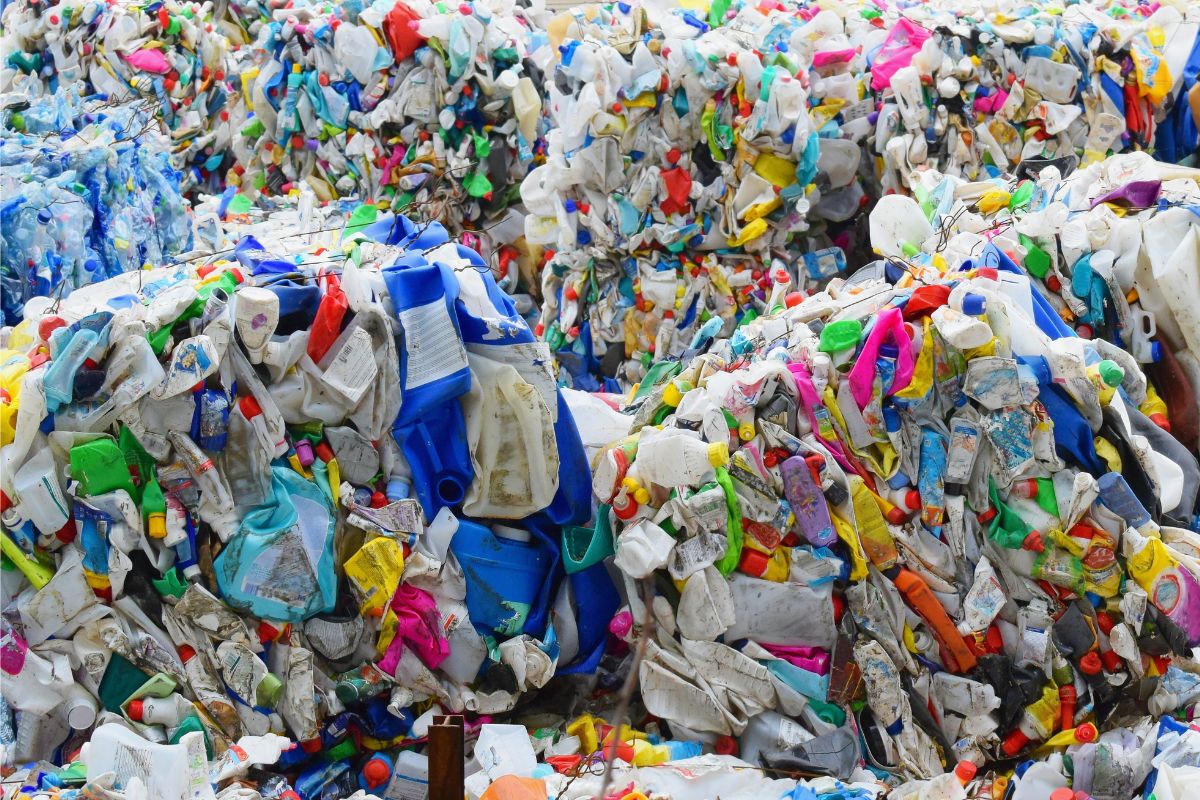Our Love/Hate Relationship
Plastics have been receiving increased attention in the media over the years as the result of heightened awareness over their environmental impact. Some of these messages are disturbing and pessimistic while others are hopeful and optimistic. If you, like myself, love this planet, it can be very confusing as to what to make of these mixed messages. This series will explore the controversy over plastics and how we can start to feel good about them again.
 “Don’t Bother Recycling”
“Don’t Bother Recycling”
Beginning in 2018, China would no longer accept the United States’ contaminated plastic waste. Because shipping this waste to China was cost neutral, the United States had been slow to develop the appropriate facilities.
On top of that, the price of plastics was so low that it was often not financially worth recycling. This left waste management companies largely with plastic waste that no one wanted. They would have to pay a premium to have the plastic waste recycled or pay less to just incinerate it or have it placed it in a landfill.
Plastics can take up to 1,000 years to decompose in a landfill, which hardly seems like a convenient way to “get rid of them.” Landfills can emit harmful gases into the earth’s atmosphere and have the risk of contaminating groundwater in the region if not properly contained. Plastics can be incinerated and at the same time energy can be recovered from their combustion. Although this option may create some energy it also produces greenhouse gases and has the potential to release other hazardous chemicals into the air.
Plastic packaging, which represents 40% of total plastic production, is one of the most problematic types of plastic. Plastic packaging is designed for single-use and is difficult to recycle due to product contamination or material separation issues, in the case of multi-layered packaging.
If we give up and throw our recyclables in the trash, change will not come. Only if we recycle and recycle to our fullest extent will demand be created to drive innovation in this space and change the economics. In 2015, only 20.6% of plastic packaging waste was collected worldwide to be recycled.
Winds of Change
There have been many positive signs that change is coming, although they do not get their fair share in the media, some of these include:
- PureCycle Technologies is using a new method to restore used polypropylene into resin that is effectively as good as new. Production is planned to begin in 2021.
- Brightmark Energy is using plastics renewal technology to turn polyethylene and polypropylene waste into diesel fuel and naptha. Their facility is scheduled to be completed by the end of 2020.
- IBM has invented a new recycling method for PET, called VolCat, which relies on a catalytic chemical process rather than mechanical separation and washing.
- Terracycle has partnered with a variety of companies to offer free, national recycling solutions for hard-to-recycle waste stream like multilayer packaging.
As we wait for the recycling industry to change, there are other steps that can be taken to lessen our impact to the planet. The first and foremost being, to reduce our dependence on single-use plastics. A simple start is to use a reusable water bottle that you take everywhere. If you are a soda drinker then try making homemade soda using reusable containers or choose an aluminum can over a plastic bottle. Aluminum recycling programs are financially viable, and aluminum can be recycled infinitely. Novel companies like Loop are also presenting solutions by offering consumable products in durable, reusable packaging.
Reducing consumption of single-use plastics has the added benefit of minimizing resource consumption and pollution associated with making the resin and product in the first place. The plastics industry is the fastest-growing source of industrial emissions, with 99% of the plastics market derived from fossil fuels.
Alternatively, a concerted effort can be made to purchase products that have been created with recycled material. In doing so, you are demonstrating with your buying power that these types of products are important. This effort can encourage those companies to continue to make products with recycled packaging and other companies to follow in their footsteps.
